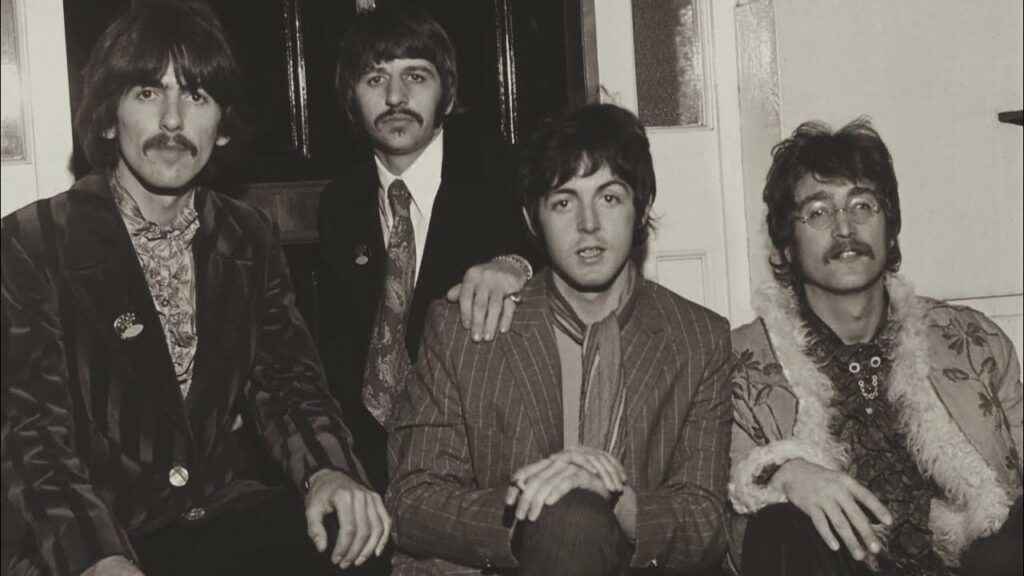
A Simple Yet Profound Declaration of Undying Love.
In the vast and kaleidoscopic tapestry of The Beatles‘ musical legacy, there exists a gem of understated beauty, a tender ballad that speaks volumes through its gentle simplicity: “I Will.” Nestled within the sprawling brilliance of their self-titled double album, affectionately known as “The White Album,” released in November 1968, this heartfelt McCartney composition, credited as always to Lennon-McCartney, offered a moment of quiet reflection amidst the album’s more experimental and often raucous tracks. While “I Will” was not released as a single on its own in most major markets at the time, it found its place as the B-side to “Ob-La-Di, Ob-La-Da” in the Philippines in 1968. Despite not charting as a standalone single in the UK or the US, its enduring charm has ensured its place as a beloved tune in the hearts of many.
The genesis of “I Will” traces back to a period of creative blossoming during The Beatles‘ transcendental meditation retreat in Rishikesh, India, in early 1968. Amidst the serene atmosphere and away from the pressures of their burgeoning fame, Paul McCartney unearthed a melody that had been lingering in his musical consciousness for quite some time. As he recalled, the lyrics came later, almost as a natural extension of the song’s inherent tenderness. He even shared the melody with Donovan, the fellow musician who was also part of the retreat, during a casual evening gathering. This unhurried and organic development perfectly mirrors the song’s unassuming nature.
At its core, “I Will” is an unadulterated expression of steadfast and unwavering love. The lyrics, though few and straightforward, resonate with a profound sincerity. Lines like “Who knows how long I’ve loved you? You know I love you still. Will I wait a lonely lifetime? If you want me to, I will” 1 speak of a devotion that transcends time and circumstance. It’s a promise, pure and simple, to love and to wait, however long it may take. The beauty lies in its universality; it’s not about grand gestures or dramatic declarations, but rather the quiet certainty of a love that endures. McCartney himself described it as “a love song, yes, but not always to someone specific,” suggesting that its power lies in its ability to resonate with anyone who has ever felt or hoped for such enduring affection.
The recording of “I Will” took place at EMI Studios in London on September 16, 1968, with Paul McCartney, John Lennon, and Ringo Starr present. Characteristically for many tracks on “The White Album,” the recording had a more stripped-down and direct feel compared to their earlier, more heavily produced work. McCartney handled the lead vocals and acoustic guitar, while Lennon contributed subtle hand percussion, and Starr provided a gentle, supportive rhythm. Adding a unique touch was McCartney’s “vocal bass,” a technique where he imitated the sound of a bass instrument with his voice, creating a surprisingly full and warm harmonic foundation for the song. This inventive approach highlights the band’s continued experimentation, even within seemingly simple arrangements.
Placed on side two of “The White Album,” between the bluesy energy of “Why Don’t We Do It in the Road?” and the poignant reflection of “Julia,” “I Will” serves as a gentle interlude, a moment to catch one’s breath and savor the sweetness of pure sentiment. In an album often characterized by its diverse styles and occasional tensions within the band, “I Will” stands as a testament to McCartney’s enduring gift for crafting timeless melodies and heartfelt lyrics. It’s a song that feels as fresh and comforting today as it did over half a century ago, a tender whisper of everlasting devotion that continues to resonate with listeners of all ages, reminding us of the simple, yet profound, power of love.